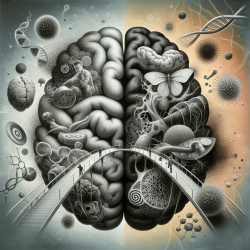Introduction
Attention Deficit Hyperactivity Disorder (ADHD) is a prevalent neurodevelopmental disorder affecting approximately 5% of school-aged children. It is characterized by symptoms of inattention, impulsivity, and hyperactivity, often leading to cognitive dysfunctions. While pharmacological treatments are common, they are not always effective, with up to 30% of individuals not responding to medication. This necessitates exploring nonpharmacological interventions, such as cognitive computer training, which has shown promise in recent studies.
The Study: Cognitive Computer Training for ADHD
A recent multicenter randomized clinical trial investigated the efficacy of "ACTIVATE™," a cognitive computer training program, in children with ADHD. This trial included 122 children aged 6 to 13 years, randomized into intervention and control groups. The intervention group used ACTIVATE™ at home for 40 minutes a day, six days a week, over eight weeks. Both groups continued their usual treatments, and outcomes were measured before and after the training, as well as at 12 and 24-week follow-ups.
Key Findings
The study aimed to assess improvements in cognitive functions, ADHD symptoms, and behavioral measures. The results highlighted the potential of cognitive training to target multiple cognitive functions, which is crucial given the variety of cognitive dysfunctions in children with ADHD. Key findings include:
- Improved sustained attention and working memory.
- Enhanced response inhibition and cognitive flexibility.
- Reduction in ADHD symptoms as rated by parents and teachers.
Implications for Practitioners
For practitioners in speech language pathology and related fields, these findings emphasize the importance of incorporating cognitive training into treatment plans for children with ADHD. The ACTIVATE™ program, in particular, demonstrates how targeted cognitive exercises can lead to significant improvements in cognitive functions and everyday behavior.
Practitioners should consider the following when implementing cognitive training:
- Integrate cognitive training with existing therapeutic interventions for a comprehensive approach.
- Monitor and evaluate the progress of cognitive functions and behavioral changes over time.
- Engage parents and caregivers in the training process to ensure consistency and adherence.
Encouraging Further Research
While the study provides promising results, it also highlights the need for further research. Future studies should focus on larger sample sizes and diverse populations to validate and extend the findings. Additionally, exploring the long-term effects of cognitive training on neural development and academic performance could provide deeper insights into its benefits.
Conclusion
The integration of cognitive computer training into ADHD management offers a promising avenue for enhancing cognitive functions and reducing symptoms. By adopting data-driven approaches and evidence-based practices, practitioners can significantly improve outcomes for children with ADHD.
To read the original research paper, please follow this link: Cognitive computer training in children with attention deficit hyperactivity disorder (ADHD) versus no intervention: study protocol for a randomized controlled trial.










